Cleaning birdhouses should be a weekly gardening practice as it can prevent the transmission of many bird diseases.
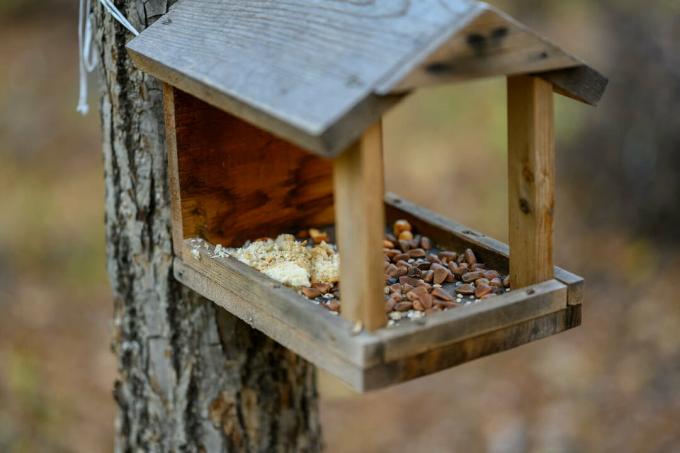
Bird feeders in the garden bring many advantages. You support the birds and at the same time you can watch their impressive flight maneuvers directly from the apartment. But if you regularly watch the birds in the aviary, you will also notice that the house gets dirty quickly. So do you have to clean bird feeders? We explain why keeping birdhouses clean is necessary, when it's best done and how to do it. We also give tips on what to consider when buying birdhouses in order to save yourself a lot of work.
contents
- Do you have to clean birdhouses?
- When and how often should birdhouses be cleaned?
- Here's how to clean bird feeders
Do you have to clean birdhouses?
Many have had birdhouses for a long time, which are cleaned at most once a year, at the beginning of spring. This raises the question of whether bird feeders need to be cleaned at all. Birdhouses are the meeting place par excellence for birds in the garden and this is also where they feed. Because many pathogens are excreted in feces and taken back in with food, bird feeders are the ideal place for disease to spread. The answer to the question of whether it makes sense to clean birdhouses is "yes". Bird feeders usually get dirty very quickly, whether it's from rain causing the feed to stick together or from birds leaving small piles of droppings in the bird feeder.
That too Cleaning nest boxes is necessary once a year. Because in addition to the birds, parasites and other vermin often settle in the nest material.
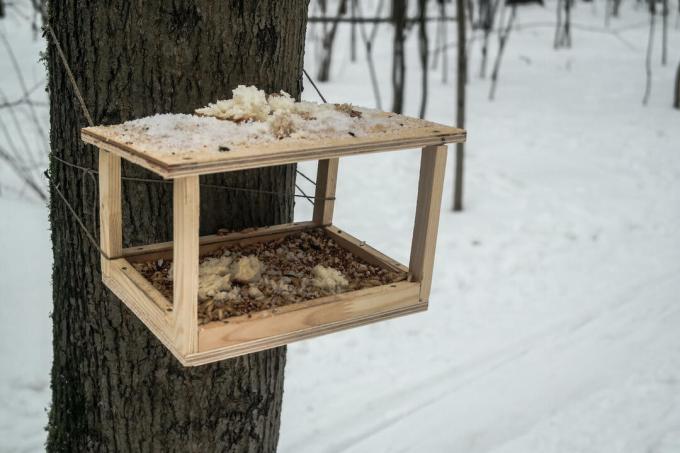
Which bird feeders are easy to clean?
When buying, you can make sure that you buy bird feeders that are easier to clean. It saves a lot of time and effort during use.
In terms of hygiene, it is best if birds do not sit in the feed. Free-hanging feed silos therefore require the least effort. Damp, sticky lining is difficult to remove and quickly begins to mold. Therefore, birdhouses with a silo in which the feed stays dry are more hygienic.
There are birdhouses that have a removable base plate, which makes cleaning easier. If this is still missing from your bird house, depending on the type of construction, you can simply saw a piece out of a thin wooden panel and insert it into the floor of the bird feeder.
Metal or plastic are easier to clean than wood and make it harder for bacteria to thrive, so those who want less cleaning effort can choose houses made of these materials.
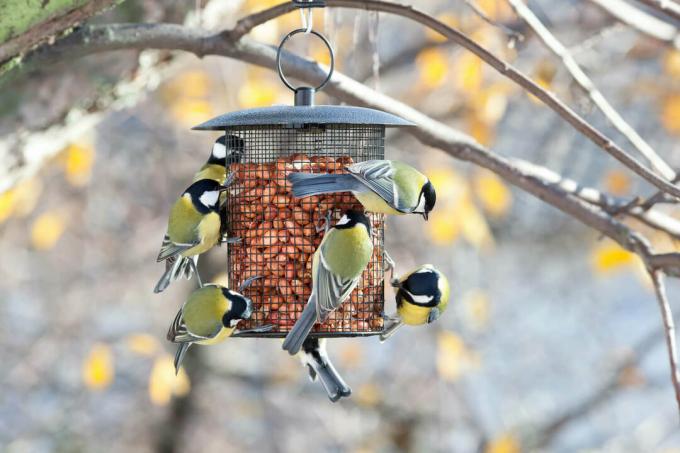
When and how often should birdhouses be cleaned?
How often and when you should clean bird houses depends on the type of construction and the degree of soiling. The more frequent the bird feeder is visited, the wetter the weather and the larger the area in which birds can perch, the more frequently the bird house should be cleaned. As a rule of thumb, cleaning bird feeders should be done about once a week. It is best to choose a day when the weather cooperates. The warmer and drier it is, the faster the bird house will dry and can be refilled.
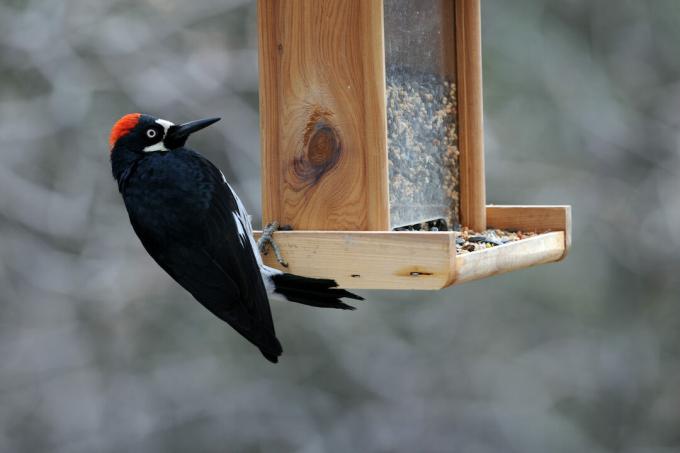
Tip: There is often leftover food around the bird feeder. This is because many types of bird food contain shells or ingredients that birds dislike. These are simply sorted out by the animals and thrown next to the feeding house. If you want to avoid this or want to feed birds on the balcony or terrace, you can use our Plantura, for example Straw feed with high-quality fats well advised. It contains no shells and was developed together with ornithologists so that the composition is perfectly adapted to the needs of the different bird species in winter.

Plantura litter for wild birds
Fat and protein rich litter
for winter feeding of wild birds,
for strengthened & active birds
Here's how to clean bird feeders
Cleaning birdhouses can be done in minutes. All you need is a brush, a rag and a bucket of very hot water.
- Discard any forage lying on the foraging area. Feed that was still in the silo and is dry can be reused after cleaning.
- Roughly brush the feeding area and the rest of the bird feeder.
- Now use very hot water to clean the bird house. Detergents and disinfectants should not normally be mixed in. After all, it is a feeding area and there is a risk that these substances will be ingested with the feed. In order to still achieve sufficient disinfection, the water should be as hot as possible.
Tip: This is where the advantage of removable floor panels comes into play. On the one hand they are easier to clean, on the other hand they can be easily replaced if they are too dirty.
- Let the birdhouse dry well.
- Now it can be filled with food again. It is better to fill the house more often with smaller portions. One serving should last about 2 days. This reduces the risk of dirt and mold.
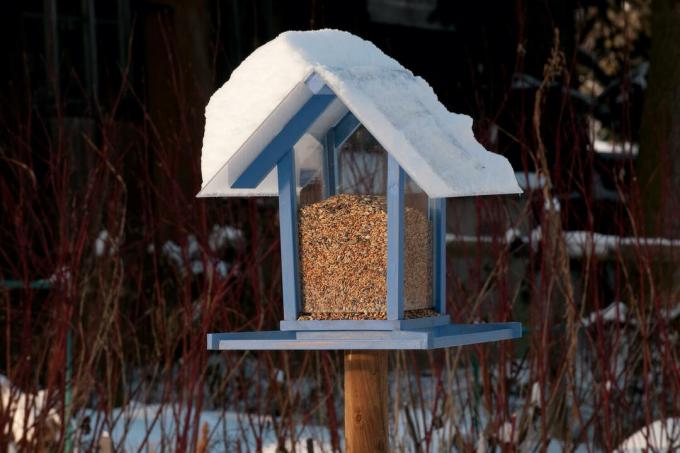
Tip: If you find a dead bird near or even in the aviary, you should consider this a serious problem. Because it indicates with a high probability of death from pathogens that spread quickly in bird feeders. Therefore, a particularly thorough cleaning is necessary, for which special disinfectants can also be used. Be sure to wash the bird feeder thoroughly with water a few more times after using any detergent.
What else is there at the proper feeding of birds to be considered, we explain in an extra article.
...and receive concentrated plant knowledge and inspiration directly in your e-mail inbox every Sunday!

